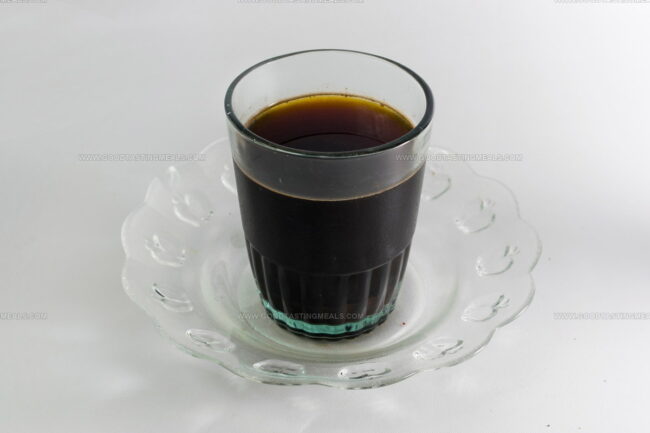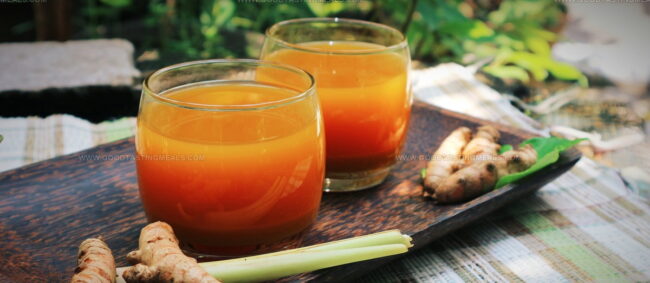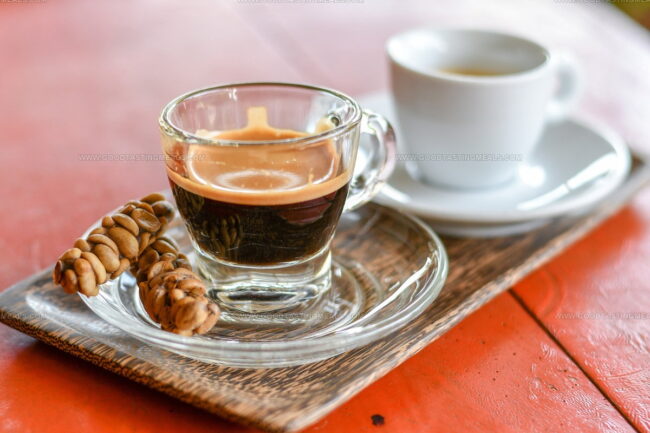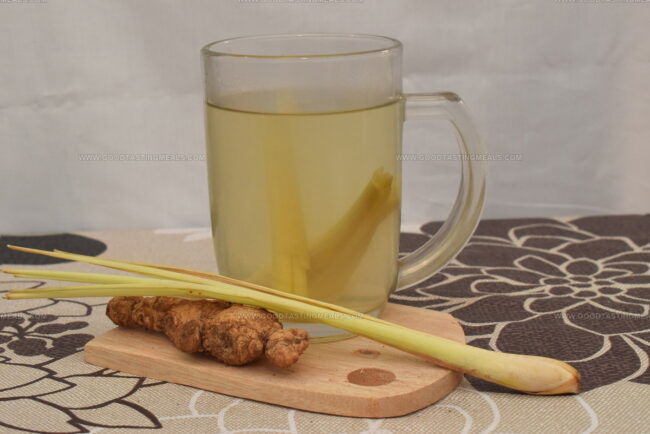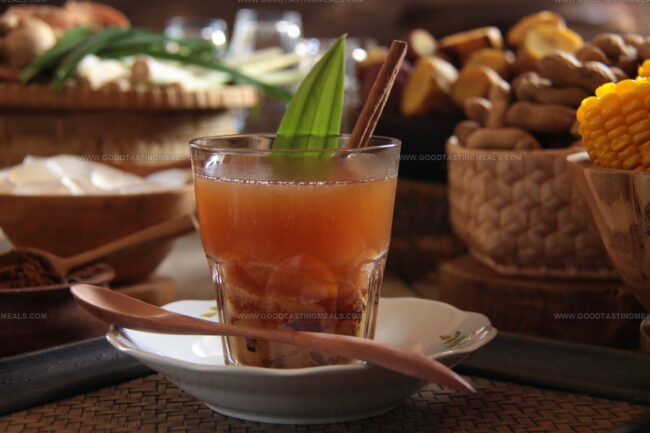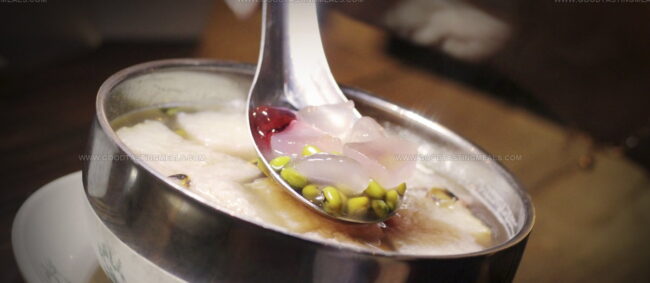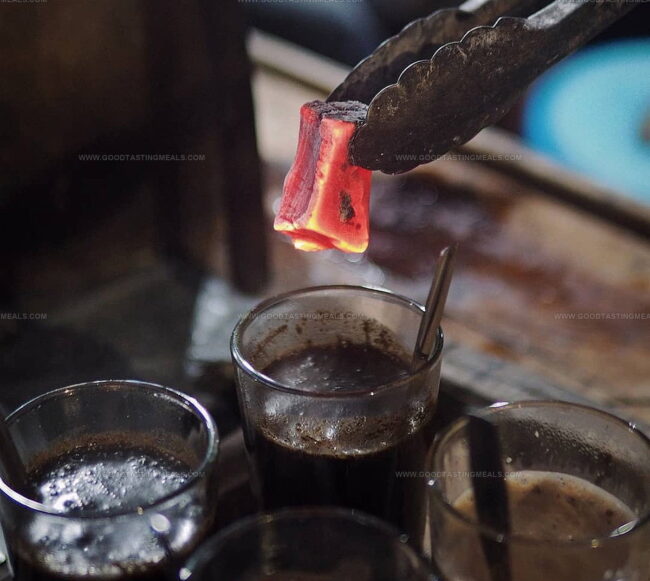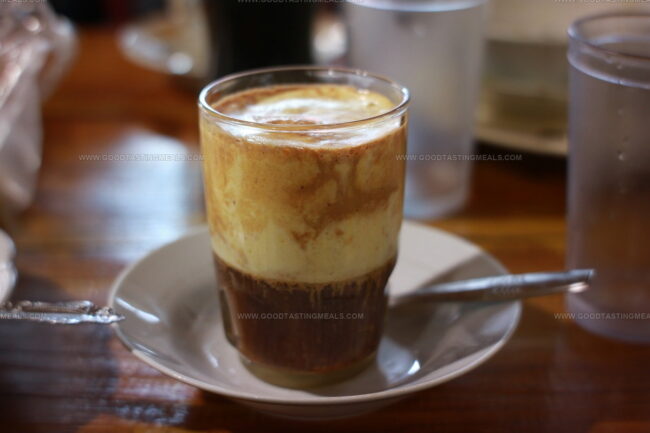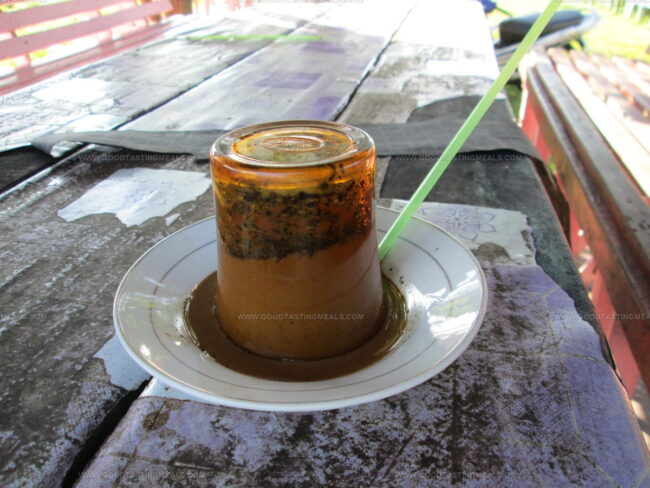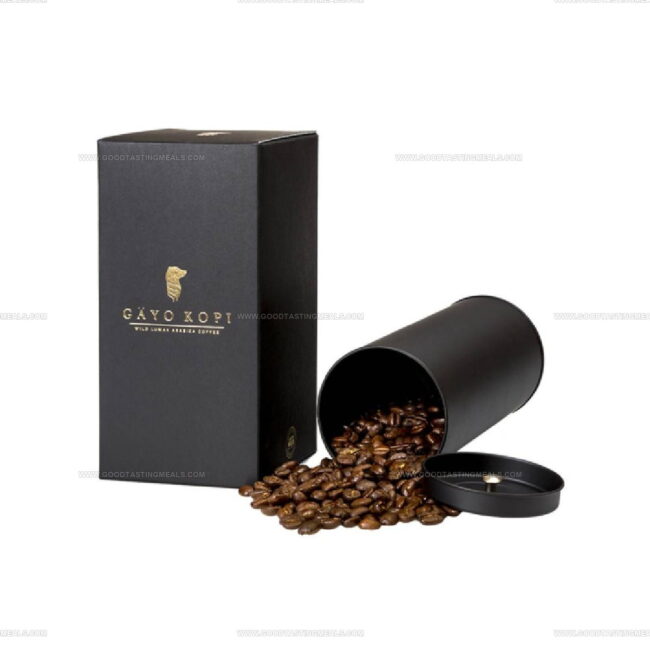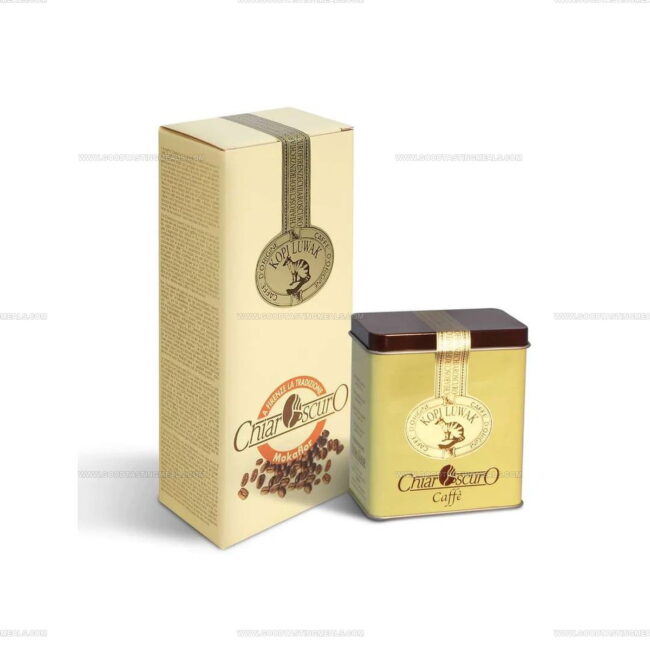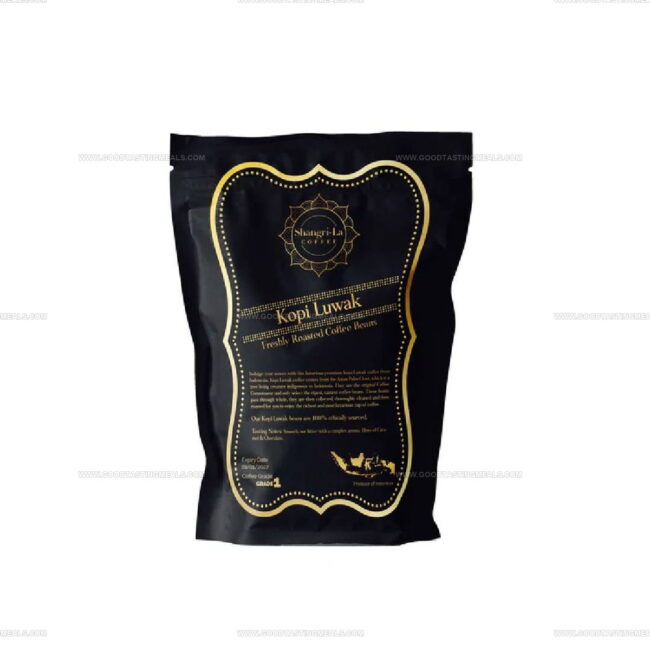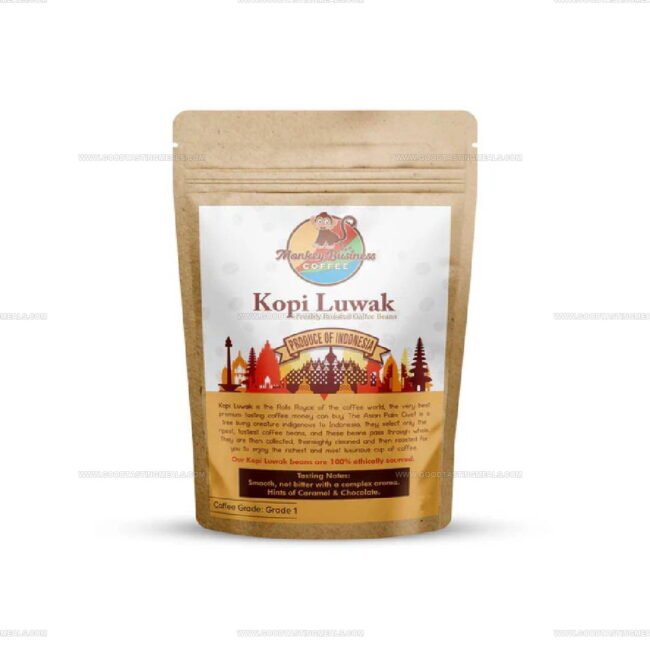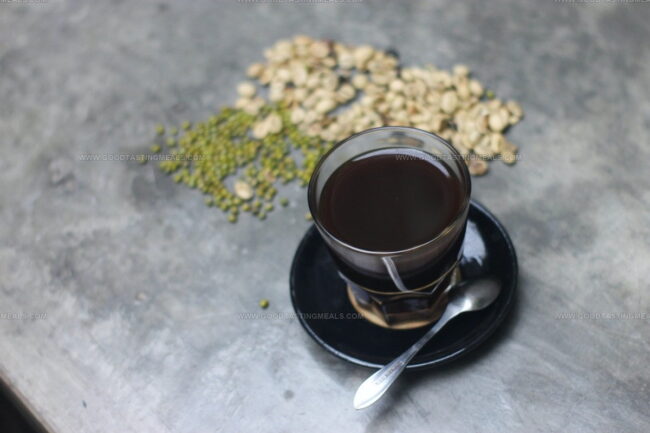28 Genuine Indonesian Beverages Every Flavor Explorer Needs
Indonesian beverages represent a vibrant tapestry of cultural flavors that dance across taste buds and regional traditions.
Liquid refreshments in this archipelago weave complex narratives of agricultural heritage and culinary creativity.
Tropical ingredients blend seamlessly with traditional brewing techniques, creating unique sensory experiences.
Each drink tells a story of local communities, agricultural practices, and generational knowledge passed through generations.
Regional variations showcase incredible diversity, from highlands to coastal areas, reflecting Indonesia's rich ecological landscape.
These beverages transcend mere thirst-quenching, embodying social connections and ritualistic significance within Indonesian culture.
The remarkable spectrum of ingredients - ranging from native fruits to fermented grains - demonstrates remarkable culinary innovation.
Here are 21 authentic Indonesian beverages that will transport you through a liquid cultural journey:
Indonesian Beverage Types for Every Mood
Indonesia’s drink menu covers everything from cooling teas to creamy coconut blends. Dive into flavors that refresh, revive, and keep you coming back for more.
Soda Gembira
Soda gembira are vibrant Indonesian refreshments blending condensed milk, carbonated water, and colorful syrup into a creamy, sweet beverage beloved by children across Indonesia.
Young generations especially enjoy this playful drink during warm afternoons as a quick sugar boost and cooling treat.
Indonesian street vendors and home kitchens frequently prepare these pink-hued beverages using readily available ingredients.
Basic recipes typically involve mixing rose or pandan syrup with condensed milk and sparkling water.
Regional variations might include slight adjustments to syrup types or milk proportions.
Carbonation provides a bubbly texture that makes the drink feel light and fun.
Simple preparation methods mean anyone can quickly create this popular Indonesian refreshment.
Tropical temperatures make soda gembira an ideal thirst-quenching option for people seeking instant relief from heat.
Kopi Tubruk
Kopi tubruk is Indonesia's boldest coffee brewing method that creates an intensely strong and unfiltered drink directly mixed with ground coffee and optional sugar.
Indonesian coffee drinkers appreciate this traditional beverage for its simple preparation technique originating from Middle Eastern traders.
Boiling water combines with fine or medium ground coffee in a single cup, creating a rich and powerful brew.
Sugar gets mixed directly with coffee grounds before hot water is added, enhancing the drink's deep flavor profile.
Coffee grounds naturally settle at the bottom of the cup after several minutes of steeping.
Java remains the primary region where this coffee style dominates local beverage culture.
Middle Eastern and Turkish coffee techniques significantly influenced this brewing method.
Indonesians enjoy kopi tubruk as a quick, robust morning or afternoon caffeine boost.
Jamu
Jamu are traditional Indonesian herbal medicines crafted from natural plant ingredients like roots, bark, flowers, seeds, leaves, and fruits that deliver powerful wellness benefits.
Indonesian cultures, especially in Java, have practiced jamu preparation for centuries as holistic healing remedies.
Practitioners blend specific ingredients to address multiple health conditions and boost overall wellness.
Herbal mixtures range from boosting immunity to improving digestion and managing inflammation.
Each jamu recipe combines unique botanical components with specific therapeutic goals.
Women often prepare these drinks at home using family-inherited techniques and local plant knowledge.
Traditional preparation methods involve grinding, boiling, and extracting essential plant nutrients.
Generations have trusted these natural medicinal drinks as fundamental wellness solutions in Indonesian health practices.
Kopi Luwak
Kopi luwak is an extraordinary coffee crafted through a unique process involving civet cats in Southeast Asia, which digest and excrete coffee beans, creating an exceptionally smooth and less bitter brew.
Dutch colonial restrictions during the 19th century inadvertently led to this coffee's discovery when Indonesian farmers noticed wild civets selecting and consuming the finest coffee cherries.
Fermentation inside the civet's digestive tract transforms the beans, reducing their natural astringency and producing a rare, highly prized beverage.
Premium kopi luwak commands astronomical prices in global markets, often reaching hundreds of dollars per kilogram.
Wild-sourced beans from free-roaming civets are considered more ethical and superior to those from captive animals.
Coffee experts worldwide recognize this Indonesian specialty for its distinctive production method and complex flavor profile.
Processing involves carefully washing, drying, and roasting the excreted beans to ensure quality and safety.
Sustainability and animal welfare concerns have recently sparked important discussions about kopi luwak's production practices.
Wedang Jahe
Wedang jahe represents a traditional Indonesian ginger beverage prized for its healing and comforting properties across Java.
Hot water blends with crushed ginger and palm sugar to create a warming drink packed with natural wellness benefits.
Indonesian families prepare this simple yet powerful brew by slowly simmering fresh ginger pieces with sweet sugar until the liquid becomes deeply infused.
Cane sugar or honey can substitute palm sugar for added variety in flavor profiles.
Pandan leaves or additional spices enhance the drink's complexity and depth.
Regional variations reflect local ingredient preferences and family traditions.
Home cooks often serve wedang jahe as a soothing remedy during cold weather or when someone feels under the wellness.
Health-conscious individuals appreciate this natural beverage for its potential anti-inflammatory and digestive advantages.
Bajigur
Bajigur is a warming Indonesian beverage steeped in Sundanese culinary tradition, blending sweet and spicy ginger notes with rich coconut milk and ans sugar.
Mobile street vendors serve this comforting drink from specially equipped carts with built-in stoves, ensuring each serving stays piping hot.
West Javanese communities traditionally enjoy bajigur during chilly evenings and rainy afternoons in cool highland regions.
Coconut milk provides a creamy base that softens ginger's sharp bite and balances ans sugar's sweetness.
Street sellers often pair bajigur with classic snacks like steamed bananas, boiled peanuts, or sweet potatoes.
Ginger's natural warmth makes this drink particularly soothing during cold weather.
Sundanese culture celebrates bajigur as more than just a beverage, treating it as a social experience and temperature-defying comfort.
Its simple ingredients and preparation method reflect West Java's straightforward, flavor-focused culinary approach.
Bandrek
Bandrek is a warming Indonesian beverage originating from West Java's Sundanese culture, designed to combat chilly mountain temperatures with its intense ginger-based spice profile.
Robust ginger essence blends harmoniously with palm sugar, creating a rich and complex hot drink that provides immediate body heat.
Traditional recipes feature cinnamon, star anise, and optional cloves as complementary spices that enhance the beverage's aromatic depth.
Sweet condensed milk softens the drink's sharp edges, while some variations include unique additions like young coconut flesh or exotic durian fruit.
Regional Sundanese families prepare bandrek using carefully selected ingredients that reflect generations of culinary wisdom.
West Java's cool mountainous landscape significantly influences this drink's development and popularity among local communities.
Indonesians consider bandrek more than just a beverage - it represents comfort, tradition, and warmth in liquid form.
Each carefully prepared cup tells a story of cultural heritage and natural ingredient wisdom.
Sekoteng
Sekoteng is a heartwarming Indonesian hot beverage originating from Central Java, featuring a spicy ginger base enriched with sweet condensed milk.
Street vendors typically sell this comforting drink during evening hours, promising warmth and better sleep for those who enjoy it.
Soft sagoo pearls, palm fruit, coconut chunks, diced bread, and roasted peanuts create a complex texture and flavor profile.
Ginger syrup forms the drink's foundational warmth, while the varied toppings provide surprising textural contrasts.
Each sip delivers a unique blend of sweetness and spiciness that reflects traditional Javanese beverage crafting.
Locals consider sekoteng an essential nighttime refreshment that soothes and energizes simultaneously.
Generations have passed down this simple yet satisfying recipe through street food culture.
Indonesians value sekoteng as more than just a drink - it represents a moment of comfort and connection.
Kopi Joss
Kopi joss is a distinctive Indonesian coffee featuring burning charcoal dropped directly into brewed coffee, creating a unique flavor profile and potentially neutralizing acidity.
Street vendors in Yogyakarta pioneered this innovative brewing method during the 1960s, generating a signature sizzling sound that inspired its playful name.
Charcoal's unexpected addition transforms the traditional coffee experience, offering subtle caramel undertones and potential health benefits.
Indonesian coffee enthusiasts embrace this unconventional preparation as a regional specialty.
Tourists frequently seek out kopi joss in Yogyakarta's bustling street markets.
Vendors carefully select high-quality coffee beans for brewing.
Local preparation techniques ensure consistent flavor and temperature.
Charcoal's integration represents an ingenious culinary experiment that distinguishes this coffee from standard brewing methods.
Egg Tea (Teh Talua)
Teh talua stands as a nourishing Indonesian beverage blending black tea with creamy egg yolks from West Sumatra.
Locals craft this energizing drink by whisking egg yolks with sugar until frothy and light.
Brewers pour freshly steeped black tea over the creamy mixture, creating a rich and smooth drink.
Chicken or duck eggs work equally well in preparing this unique tea.
Optional lime juice adds a tangy brightness to the beverage.
Traditional preparations suggest teh talua boosts stamina and provides health benefits.
Regional West Sumatran traditions celebrate this simple yet innovative drink.
Generations have enjoyed this warming tea as a quick, nutritious refreshment.
Arak
Arrack represents a diverse family of distilled spirits originating from East India with deep historical roots tracing back to the 15th century.
Sri Lanka, Indonesia, and the Philippines produce multiple varieties of this potent alcohol through unique fermentation processes.
Ceylon arrack emerges as the most famous version, carefully distilled from fresh coconut palm juice and delivering a distinctive smooth flavor profile.
Indonesian Batavian arrack distinguishes itself by using molasses as its primary fermentation base, creating a different taste experience.
Arabic and Chinese distillation techniques likely influenced arrack's initial development in India, contributing to its complex production methods.
Each regional variant carries unique characteristics depending on local ingredients and traditional preparation techniques.
Distillation processes vary significantly across different geographical areas, allowing arrack to maintain its intriguing complexity.
Modern arrack production continues to honor ancient brewing traditions while adapting to contemporary alcohol markets.
Ginseng Coffee (Kopi Ginseng)
Ginseng coffee blends the rich flavors of coffee with potent medicinal ginseng root, creating a unique health-boosting beverage.
Indonesian entrepreneurs first commercialized this innovative drink in 1994, quickly spreading its popularity across global markets.
Italian cafes embraced the trend, making ginseng coffee a staple in their coffee culture.
Traditional Chinese medicine inspired this combination, highlighting ginseng's therapeutic properties.
Consumers appreciate its potential health benefits, including reduced caffeine levels and natural wellness advantages.
Instant coffee packets and home brewing methods make ginseng coffee easily accessible.
Ginseng extract or powder can be added directly to standard coffee preparations.
Regular drinkers value this beverage as a sophisticated alternative to traditional coffee blends.
Arak Attack
Arak Attack electrifies Balinese cocktail culture with its bold fusion of traditional spirit and tropical flavors.
Balinese bartenders craft this signature drink using arak, a potent liquor distilled from fermented rice or palm sap.
Orange juice and grenadine transform the potent spirit into a vibrant, layered beverage with deep red and lighter golden hues.
Grenadine adds a sweet counterpoint to arak's intense alcohol profile.
Bartenders carefully mix the ingredients to balance strong and fruity notes.
Tourists and locals alike enjoy this refreshing drink as a quintessential Balinese experience.
Summer heat makes this cocktail especially appealing.
Island bars serve Arak Attack as a perfect introduction to Bali's unique drinking culture.
Bali Arak
Bali arrack epitomizes Indonesia's traditional alcoholic spirit crafted through meticulous fermentation and distillation of palm sap, creating a potent liquor with complex flavor profiles.
Artisanal production methods transform raw palm flower nectar into a clear or amber-colored beverage that ranges dramatically in strength and taste between different regional producers.
Indonesian cultural traditions deeply integrate this spirit into social gatherings and religious ceremonies, where it serves multiple purposes beyond casual consumption.
Locals frequently use Bali arrack in traditional medicine and social rituals, reflecting its historical significance.
Alcohol content varies significantly, typically ranging between 40-60 percent, which contributes to its robust character.
Careful sourcing remains critical for consumers due to historical risks of methanol contamination in improperly distilled batches.
Tourists should purchase from reputable sources to ensure safe consumption.
Distillation techniques passed through generations continue to define this unique Indonesian alcoholic beverage.
Sara’Ba
Sara'ba blends bold ginger warmth with sweet coconut milk, creating a comforting Indonesian hot beverage from South Sulawesi.
Traditional street vendors serve this spicy drink during cooler seasons, featuring a unique combination of ingredients.
Ginger provides a sharp, intense flavor that warms you from within.
Coconut milk softens the spice with creamy smoothness.
Peanuts add a delightful crunch to the liquid's surface.
Slices of bread float on top for extra texture.
Tapioca pearls called pacar cina contribute a playful, chewy element.
South Sulawesi locals treasure this drink as a beloved regional specialty that satisfies both hunger and thirst.
Jahe Telor
Jahe telor is a powerful Indonesian energy drink blending raw egg, ginger, and milk or water into a nutrient-dense beverage that boosts stamina and supports overall health.
Indonesian athletes and active individuals rely on this traditional hot drink for quick nutrition and natural performance enhancement.
Ginger provides warming anti-inflammatory properties while adding bold, spicy flavor to the mixture.
Raw eggs contribute significant protein and essential nutrients to the drink.
Home cooks prepare jahe telor by whisking fresh ingredients together and heating them to create a smooth, comforting beverage.
Regional variations might include additional spices or sweeteners like honey or palm sugar.
Indonesia's fitness and wellness communities embrace jahe telor as a natural health supplement.
Travelers and locals alike enjoy this simple yet potent drink throughout the country.
Kopi Terbalik
Kopi terbalik offers a mesmerizing coffee experience unique to Indonesia where hot brewed coffee dramatically transforms into an interactive drinking ritual.
Indonesian baristas carefully prepare rich, dark coffee and pour it into a standard glass before inverting the entire vessel onto a large plate.
Guests receive a special straw designed to slowly release air beneath the upturned glass, causing the coffee to gradually flow onto the plate.
Pressure from the straw creates a controlled liquid release that allows drinkers to control their coffee's descent.
Traditional preparation involves using robust local coffee beans known for deep, intense flavors.
Regional variations might include adding sugar or selecting specific bean types from different Indonesian islands.
Serving kopi terbalik requires skill and precise technique to maintain the dramatic visual presentation.
This coffee style turns drinking into a playful, engaging experience that connects people through a shared cultural moment.
Batavia Arrack
Batavia arrack represents an ancient Indonesian spirit distilled from sugarcane molasses and red rice with subtle palm juice influences.
Indonesian distillers craft this potent alcoholic beverage originating in Java with complex herbaceous, nutty, and smoky flavor profiles.
Dutch traders popularized arrack globally during colonial periods, establishing its reputation as a premium spirit predating modern rum and other spirits.
Alcohol enthusiasts recognize arrack's unique characteristics that distinguish it from standard rum variations.
European markets initially prized Batavia arrack as superior to Caribbean rum throughout 18th and 19th centuries.
Historical records suggest arrack emerged before Dutch East India Company settlements in Indonesia.
Traditional preparation methods involve carefully selected fermentation processes that create distinctive taste experiences.
Modern mixologists increasingly incorporate arrack into sophisticated cocktail recipes, reviving interest in this traditional Indonesian distillate.
Loloh Cemcem
Loloh cemcem is a powerful herbal tonic from Bali that delivers potent natural healing through an intricate blend of medicinal plant leaves.
Balinese traditional medicine relies on this unique drink to boost immunity and support overall wellness.
Palm sugar adds sweetness to the mixture, balancing the intense herbal flavors from cemcem, jatropha, betel, and dadap leaves.
Native healers carefully select and combine these specific ingredients to create a balanced therapeutic beverage.
Local communities have used this drink for generations to address various health concerns.
Lime occasionally enhances the drink's complexity and medicinal properties.
Preparation involves carefully washing and mixing the selected leaves with sugar.
Practitioners brew the ingredients into a concentrated liquid that can be consumed hot or cold.
Daluman
Daluman represents a classic Balinese green jelly drink crafted from cincau plant leaves, delivering a uniquely refreshing tropical beverage.
Green jelly cubes float gracefully in a sweet coconut milk base with palm sugar syrup, creating a visually appealing and cooling treat.
Native to Indonesia, this traditional drink provides instant relief from tropical heat and humidity.
Palm sugar adds rich caramel-like sweetness while coconut milk introduces creamy smoothness to the beverage.
Plant-based ingredients ensure natural green coloration and smooth texture.
Indonesians enjoy daluman as a popular street drink and home refreshment.
Women often prepare this beverage during warm afternoons as a quick cooling solution.
Medicinal properties of cincau leaves contribute additional health benefits to this simple yet delicious drink.
Arak Madu
Arak Madu is a vibrant Balinese cocktail blending traditional spirit with sweet and tangy flavors.
Arak, a potent distilled alcohol from rice or palm sap, forms the cocktail's base spirit in Bali.
Honey provides a smooth sweetness that softens arak's strong alcohol profile.
Fresh lime juice adds a bright, citrusy balance to the drink.
Bartenders mix arak with generous honey amounts, then dilute with water or ice.
Locals enjoy this cocktail as a refreshing beverage during social gatherings.
Tourists often discover this drink as a unique taste of Balinese culture.
Simple ingredients and easy preparation make Arak Madu a popular choice among both residents and visitors.
Who’s Leading the Indonesian Beverage Scene?
Innovative producers are bringing new twists to beloved local drinks. Discover the people and brands behind Indonesia’s vibrant beverage culture.
Gayo Kopi
Kopi Luwak coffee represents an extraordinary Indonesian beverage extracted through a unique process involving wild civets selectively eating and digesting premium coffee cherries.
Sourced from Gayo Highlands in Northern Sumatra, these beans undergo a natural fermentation inside civet digestive systems before collection.
Wild civets roam freely, consuming only the ripest coffee cherries, which enhances the bean's complex flavor profile.
Gayo Kopi ensures ethical harvesting by collecting beans exclusively from uncaged animals in their natural habitat.
Specialized processing transforms these beans into an expensive, rare coffee with distinctive earthy and smooth characteristics.
Indonesian coffee experts consider this method the most authentic way of producing premium coffee.
Each batch undergoes rigorous quality control to maintain exceptional standards.
Passionate coffee enthusiasts worldwide seek this exceptional brew for its unparalleled taste and remarkable production method.
Kopi Luwak Coffee
Kopi Luwak represents an extraordinary Indonesian coffee renowned for its unique production process involving wild civets.
Wild Asian palm civets consume premium coffee cherries and naturally ferment them through their digestive system, creating distinctive flavor characteristics.
Coffee beans are carefully collected from civet droppings and undergo extensive cleaning and roasting processes.
Experts consider this coffee among the most expensive globally, with prices reaching hundreds of dollars per pound.
Indonesian coffee farmers have practiced this traditional method for generations, transforming animal waste into a prized beverage.
Flavor profiles include smooth caramel and chocolate undertones with minimal bitterness.
Sustainability concerns have emerged regarding animal welfare in modern production methods.
Rigorous quality control ensures each batch meets strict international standards.
Kopi Luwak Company
Kopi Luwak coffee stands as a rare Indonesian delicacy produced through an extraordinary fermentation process involving wild Asian palm civets.
British company specialists carefully source premium beans from regions where civets naturally consume and digest coffee cherries, transforming raw beans through unique digestive enzymes.
Wild civets roam freely across Indonesian landscapes, selecting only perfect coffee fruits and naturally processing beans through their complex digestive systems.
UK importers guarantee ethical collection methods that prevent animal cruelty, ensuring no civets are caged or harmed during production.
Unique fermentation creates smooth, reduced-acid coffee with distinctive flavor profiles unavailable through standard roasting techniques.
Customers worldwide can purchase whole beans, ground coffee, and Nespresso-compatible pods through their online platform.
Each batch undergoes rigorous quality checks and includes a money-back guarantee for complete customer satisfaction.
International shipping options make this exceptional coffee accessible to global coffee enthusiasts seeking extraordinary taste experiences.
Indonesian Beverages That Surprise and Delight
Sip your way through Indonesia’s creative drinks, each one bursting with tropical flair. Whether you love something sweet or herbal, there’s a flavor adventure ahead.
Gayo Kopi Kopi Luwak
Gayo Kopi's Arabica Luwak Coffee represents an extraordinary single-origin coffee experience from wild civets roaming Sumatra's Gayo Highlands, delivering an unparalleled taste journey through its complex flavor profile.
Mountain-sourced beans showcase rich chocolate undertones and smooth caramel notes that dance across each sip.
Ethically produced through careful wild civet selection, this premium coffee guarantees exceptional quality and minimal environmental impact.
Meticulous roasting techniques preserve the beans' natural characteristics and depth of flavor.
Gold foil packaging with a degassing valve ensures maximum freshness and aroma retention.
Luxury presentation includes an elegant display box and double-lidded keepsake tin.
Coffee connoisseurs recognize this rare brew as a pinnacle of Indonesian coffee craftsmanship.
Global demand often exceeds limited production, making each batch a treasured find for discerning drinkers.
Kopi Luwak Coffee Kopi luwak
Kopi Luwak coffee emerges as an extraordinary Indonesian beverage crafted through an unusual process involving Asian palm civets.
Wild civets naturally select and consume only the ripest coffee cherries, which ferment during digestion and transform bean chemistry.
Digestive enzymes break down coffee's harsh proteins, creating a uniquely smooth flavor profile with reduced acidity.
Collectors carefully gather beans from civet droppings, meticulously cleaning and roasting them to preserve exceptional taste characteristics.
Specialized production methods and extreme scarcity contribute to its astronomical price point, often reaching hundreds of dollars per kilogram.
Indonesian farmers in regions like Sumatra and Java carefully track wild civet populations to source authentic beans.
Scientific research suggests the fermentation process genuinely impacts coffee's final taste complexity.
Global coffee enthusiasts consider Kopi Luwak a rare delicacy with unparalleled brewing potential.
Kopi Luwak Company Shangri-La Coffee Wild Kopi Luwak Ground Coffee
Shangri-La Coffee Wild Kopi Luwak Ground Coffee represents an extraordinary Indonesian coffee crafted through an unusual process involving wild Asian palm civets.
These small mammals naturally select and consume only the most perfect coffee cherries during their forest wanderings.
Digestive fermentation occurs as civets process the cherries, transforming bean chemistry in unique ways.
Indonesian farmers carefully collect the excreted beans from forest floors, ensuring minimal environmental disruption.
Professional processing involves thorough cleaning and expert roasting to maximize flavor complexity.
Each batch delivers smooth coffee notes with subtle caramel and chocolate undertones.
Ethical sourcing practices protect civet populations and support sustainable agricultural methods.
Ground coffee arrives ready for brewing, offering coffee enthusiasts a rare and luxurious tasting experience.
Kopi Luwak Company Monkey Business Coffee
Playful Wild Kopi Luwak Coffee sparkles as a unique specialty coffee brand from The Kopi Luwak Company, delivering ethically sourced Indonesian coffee through an innovative production process.
UK-based importers ensure Asian palm civets remain free and unharmed during bean collection, maintaining strict animal welfare standards.
Their colorful packaging features whole beans, ground coffee, and Nespresso-compatible capsules designed to attract coffee lovers seeking exceptional quality.
Sourced from specific Indonesian regions, these premium beans undergo careful selection and processing to guarantee superior taste and quality.
Each package represents a commitment to ethical sourcing and animal protection while providing an extraordinary coffee experience.
The brand stands out for its playful design and transparent production methods, appealing to conscious consumers.
Consumers can choose from multiple formats to enjoy their distinctive coffee.
Wild Kopi Luwak Coffee transforms traditional coffee consumption into an engaging and responsible beverage adventure.
Is Indonesian Coffee Different From Other Global Coffee Styles?
Indonesian coffee stands out globally thanks to its unique growing conditions, processing methods, and flavor profiles that reflect the country’s diverse islands:
Indonesian coffee offers a rich, earthy alternative to more common coffee styles, deeply tied to its local heritage.


